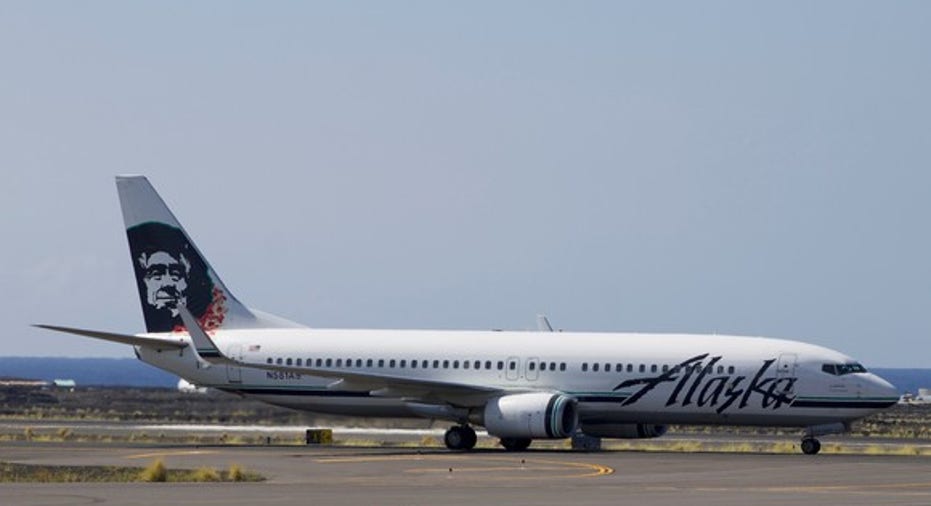Delta and Alaska Air Terminate Their "Frenemy" Relationship

Delta Air Lines (NYSE: DAL) and Alaska Air (NYSE: ALK) have been "frenemies" for the past few years. While the two carriers have a codeshare and frequent flier partnership, they have aggressively entered each other's markets and tried to steal customers from one another.
Recently, Delta has acted more like a competitor to Alaska Air than a partner. Image source: The Motley Fool.
This week, Delta and Alaska Air abandoned the pretense of being partners. As of May 1, the two carriers will terminate their codeshare and frequent flier agreements, becoming pure competitors.
Growing apart
Four years ago, Delta Air Lines and Alaska Air had a very close partnership. At that time, Delta had just started building up Seattle as a key gateway for international flights, particularly to Asia. Meanwhile, Alaska Airlines operated a sizable domestic-oriented hub in Seattle. By working together, Alaska was able to deliver lots of connecting traffic to Delta's long-haul flights.
For example, in late 2012, Delta announced an expansion of its international flights in Seattle, with new service to Shanghai and Tokyo's Haneda Airport, as well as upgraded aircraft on other routes. Delta's then-CEO, Richard Anderson, stated, "This kind of international growth is possible only because of our partnership with Alaska, and customers of both our airlines will benefit from this newly strengthened relationship."
However, Delta quickly soured on this partnership. Its reliance on Alaska to provide connecting traffic meant that Alaska Air had enough leverage to capture a sizable proportion of the profit from the relationship.
As a result, in 2013, Delta Air Lines began adding flights in Seattle at a rapid pace. Since 2013, it has more than tripled its presence in Seattle, growing from as few as 40 daily departures to 150 peak-day departures. This has enabled Delta to offer numerous connecting opportunities within the U.S. and Canada using its own planes.
Delta and Alaska Air wind down their relationship
Delta Air Lines and Alaska Airlines have been steadily unwinding their partnership over the past few years. In 2013, Alaska received $235 million of revenue from Delta codeshare and interline tickets. Today, it only gets $65 million of annual revenue from those relationships. (In fact, $50 million of that total comes from an interline agreement that will remain intact.)
The Delta-Alaska Air codeshare partnership has declined in importance. Image source: The Motley Fool.
Now, they are making their breakup official. According to the press releases published by Delta and Alaska, customers will no longer be able to book codeshare tickets for flights taking off on May 1 or later. Additionally, beginning on May 1, Delta frequent fliers won't be able to earn miles for Alaska Airlines flights; the same applies to Alaska frequent fliers on Delta flights.
Award redemptions will last a little longer. Alaska frequent fliers will be able to book award flights on Delta (and Delta frequent fliers will be able book award flights on Alaska) anytime up until April 30, even for flights later in 2017 or in early 2018.
However, as noted earlier, Delta and Alaska will keep their interline agreement in place. This allows travel agencies to create itineraries combining flights on both airlines, with the airlines taking responsibility for transferring checked bags to one another.
They don't need each other
Alaska Air's recently finalized merger with Virgin America appears to have been the final straw that broke the Alaska-Delta partnership.
Virgin America's solid presence in Los Angeles (a hub market for Delta) means that the two companies are now competing on even more routes. Furthermore, Alaska Air's increased scale means it has less need for codeshare partners.
The Alaska-Virgin America merger accelerated the Delta partnership's demise. Image source: Alaska Airlines.
Indeed, Alaska Air now promotes itself as the largest airline on the West Coast, with more than 1,200 daily flights to and from the West Coast. It plans to use its enlarged footprint to gain more market share at the expense of its larger rivals. For example, in conjunction with announcing the end of its partnership with Delta, Alaska revealed several frequent flier program enhancements. Most notably, some award tickets will now be available for as little as 5,000 miles one-way.
As for Delta, its growth in Seattle has ended its need for a local partner to offer connections there. It already flies nonstop from Seattle to most of the key markets in the western U.S., and it is likely to continue gradually adding flights there in the coming years.
Due to both carriers' efforts to become more self-reliant in the past few years (especially in Seattle), neither carrier should be hurt much by the termination of their codeshare and frequent flier partnership. Meanwhile, travelers should benefit from stepped-up competition between Alaska (including Virgin America) and Delta in Seattle, Los Angeles, and beyond.
10 stocks we like better than Delta Air Lines When investing geniuses David and Tom Gardner have a stock tip, it can pay to listen. After all, the newsletter they have run for over a decade, Motley Fool Stock Advisor, has tripled the market.*
David and Tom just revealed what they believe are the 10 best stocks for investors to buy right now... and Delta Air Lines wasn't one of them! That's right -- they think these 10 stocks are even better buys.
Click here to learn about these picks!
*Stock Advisor returns as of Nov. 7, 2016
Adam Levine-Weinberg owns shares of Alaska Air Group and is long January 2017 $40 calls on Delta Air Lines. The Motley Fool has no position in any of the stocks mentioned. Try any of our Foolish newsletter services free for 30 days. We Fools may not all hold the same opinions, but we all believe that considering a diverse range of insights makes us better investors. The Motley Fool has a disclosure policy.



















